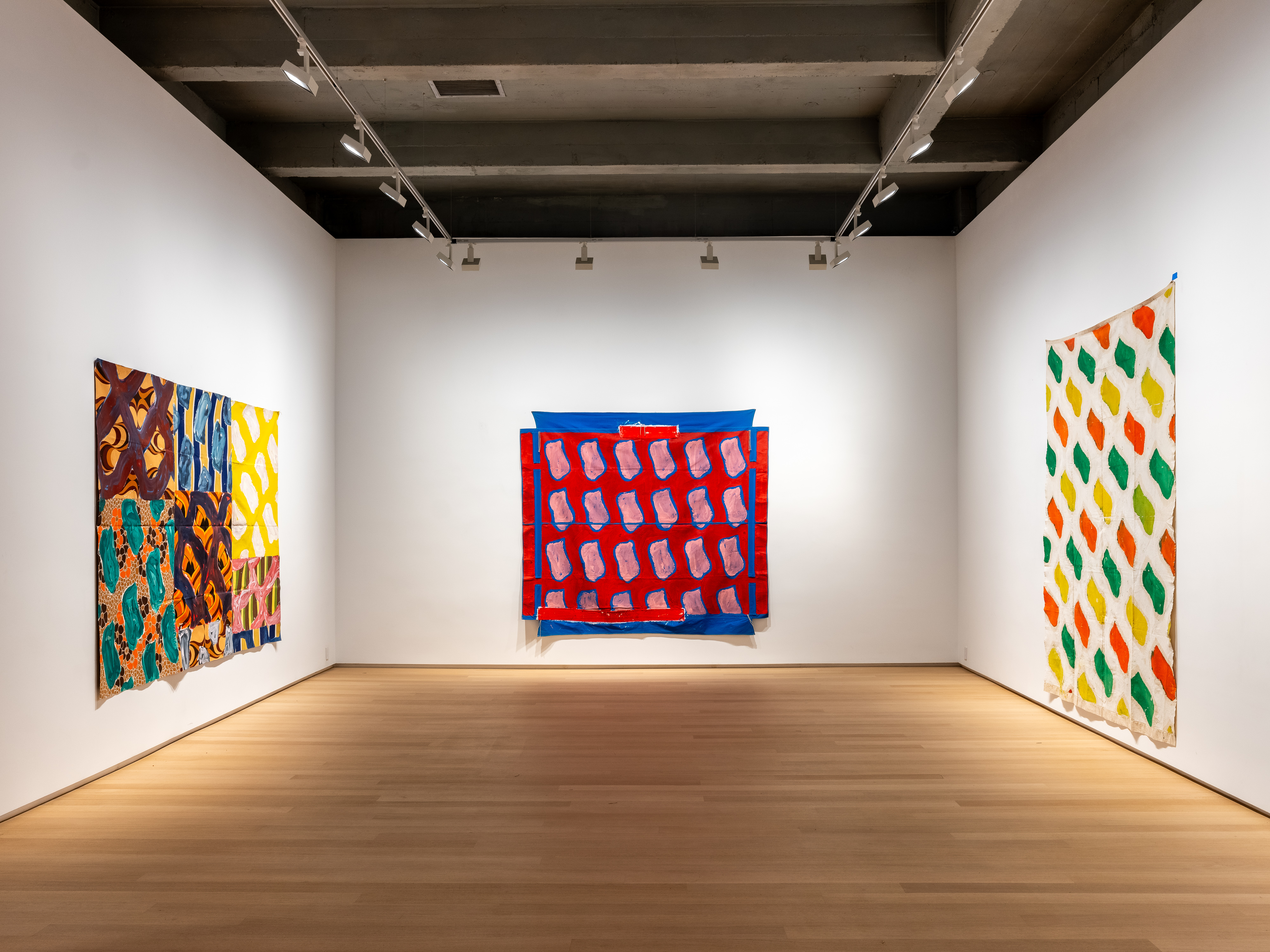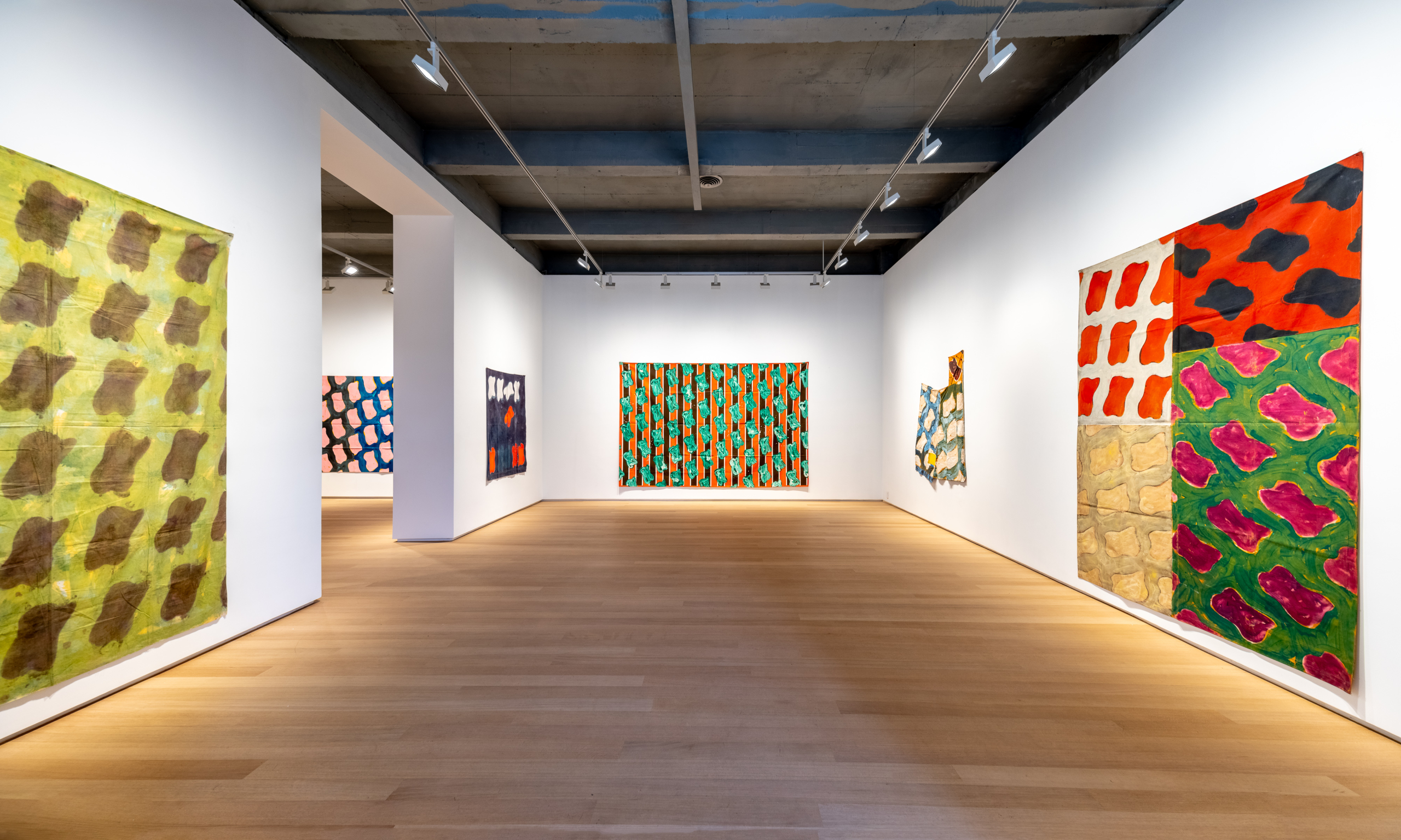
Claude Viallat
Made in Nîmes
TEMPLON is proud to welcome abstract painter Claude Viallat in its New York space for the first time. A legendary figure of the last French avant-garde movement, Supports/Surfaces, Claude Viallat, now 88, is taking over the Chelsea gallery with an installation of large-scale colorful tarpaulins, created between the 1970s and today.
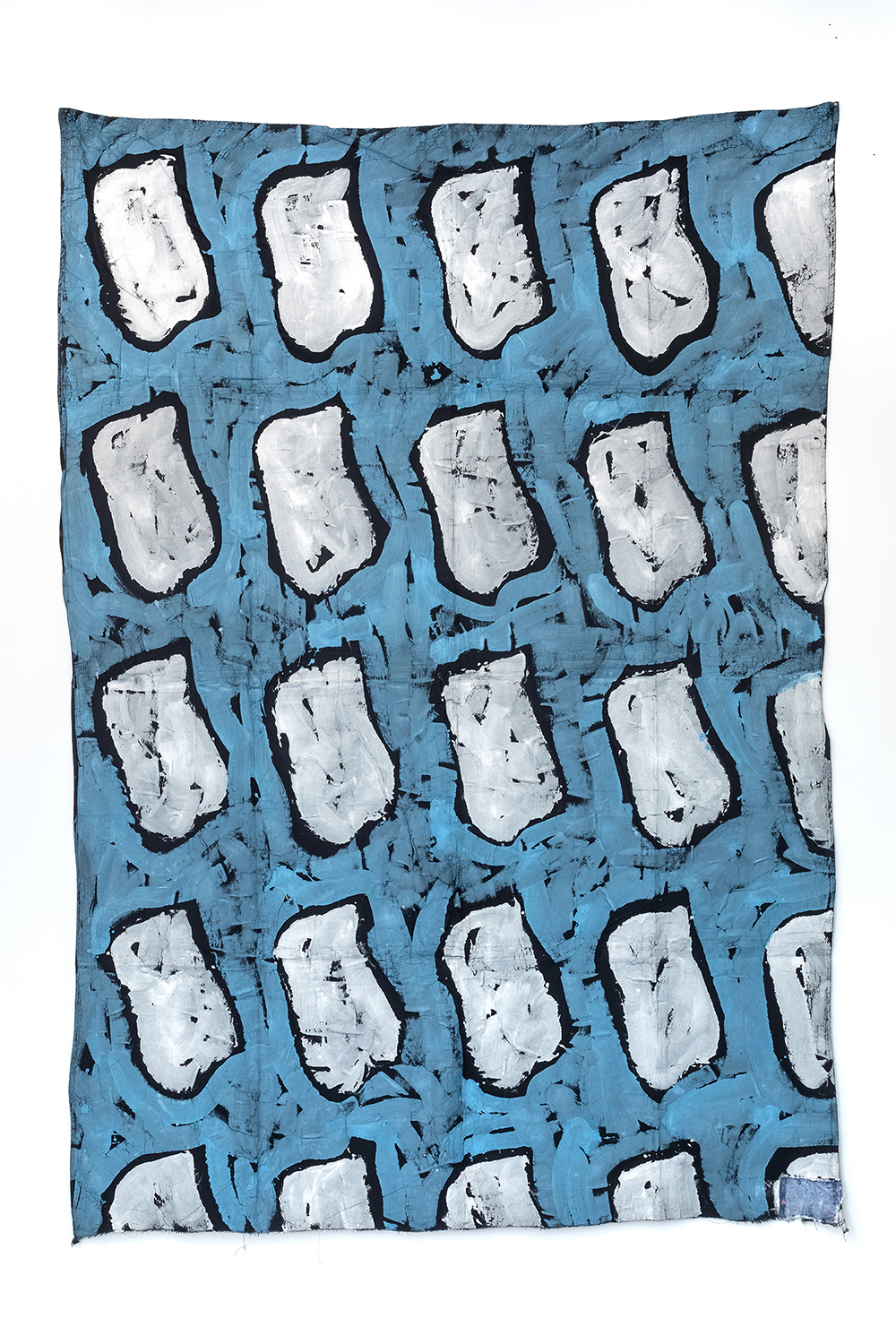
Based in Nîmes in the south of France, Claude Viallat developed an artistic protocol over 60 years ago he has stayed faithful to ever since. Rejecting the notions of “picture”, “figuration” and “narration”, he has been repeating the same geometric form, suggesting a cell or small bone, on found fabrics with no stretchers and no frames. A pioneering figure in the Supports/Surfaces movement and its quest to overthrow the codes of painting, Claude Viallat has today established himself as one of the most radical painters of his generation.
The Templon exhibition offers a retrospective look at his practice. From the raw tarpaulins of the late 1960s to largescale compositions on printed fabric and the glued and patched canvases he has produced in recent years, the works illustrate the unprecedented creativity of an artist who has never renounced the agenda he set himself at the start of his career. A great admirer of Matisse, his art borrows from sources as varied as rock art, Native American culture and bullfighting. His work reveals a particular interest in the US art scene, as demonstrated by the discreet drips that crop up here and there on his military tarpaulins, scarves and luxury fabric offcuts, a nod to legendary abstract expressionist Jackson Pollock. His exploration of volume and space results in the resolute questioning of the status of the work of art and very purpose of its exhibition.
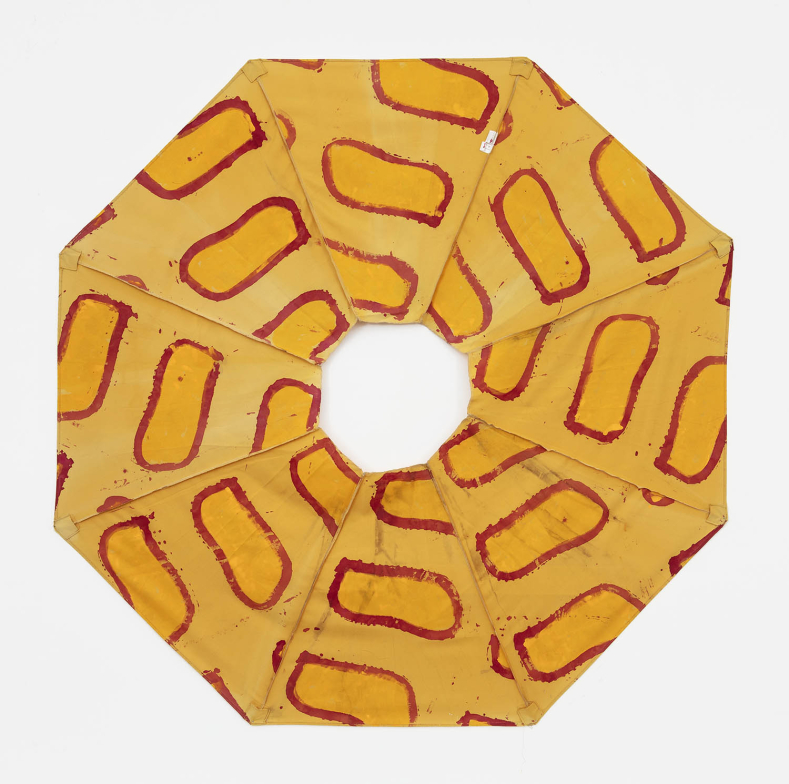
Sans titre n°469, 2020
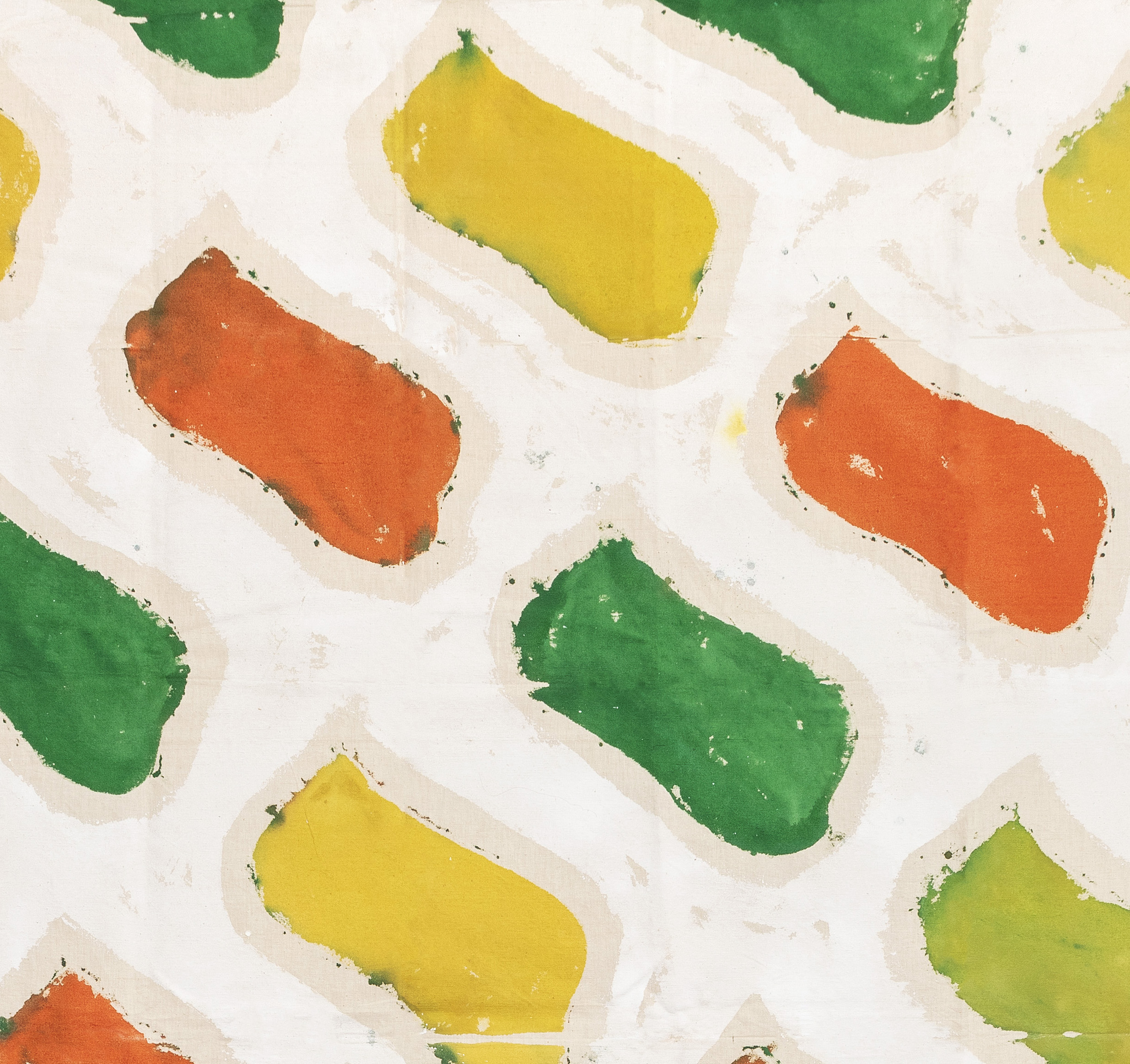
The artist
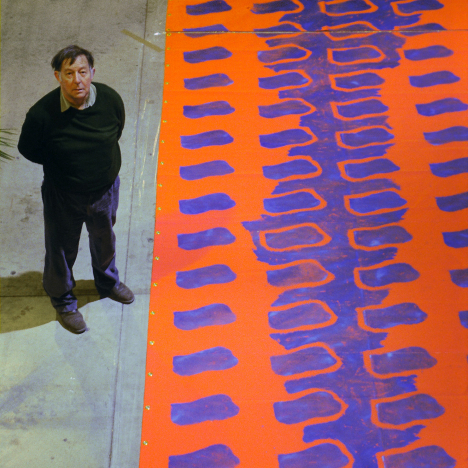
Claude Viallat was born in 1936 in Nimes, France, where he continues to live and work. He is one of the founders of the Supports/Surfaces movement in the 1970s, which called for art to renew itself through a deconstruction of traditional materials. Viallat started to work on industrial tarp, endlessly repeating the same abstract pattern, resembling a small bone, which became his signature. Stencilled repeatedly onto a range of supports, the pattern asks us to reflect on the meaning of the creative act and the status of the work of art.
